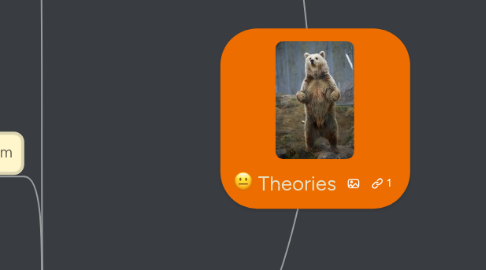
1. Technology Theories
1.1. Media Ecology
1.1.1. Basic Principles: technology, modes of communication and nodes of information shape human affairs.
1.1.2. Implications: meta-discipline and cross-curricular work integrating different subject matter and types of knowledge.
1.1.3. Connections: heavy emphasis on understanding how media shapes our being. Technological Determinism. Contrasts with SCOT.
1.2. SCOT
1.2.1. Basic Principles: a theory and methodology that human actions shapes technology.
1.2.2. Implications: seeks to understand how and why we use technology.
1.2.3. Connections: a response to Media Ecology, and is sometimes called, Technology Constructivism.
2. Learning Theories
2.1. Connectivism
2.1.1. Basic Principles: thinking and learning go hand-in hand. Learning is creation, not just consumption.
2.1.2. Implications for Ed.: students can learn outside of the traditional classroom, and require a variety of learning options.
2.1.3. Connections with other Theories: better suited, than the other theories listed here, for the digital era.
2.2. Constructivism
2.2.1. Basic Principles: Learning is constructed, or built upon previous knowledge.
2.2.2. Implications for Ed.: students are not merely a "blank slate," and are active learners.
2.2.3. Connections: teaching does not occur solely by the teacher pouring out knowledge into the student, unlike in other models.
2.3. Cognitive Load
2.3.1. Basic Principles: an Information Learning Theory based on the idea that the mind has working memory, long-term memory, and schema.
2.3.2. Implications for Ed.: use "chunking," repetition, and "information landscapes."
2.3.3. Connections: more focused upon the teacher's role in dispersing knowledge to the student.
2.4. Behaviorism
2.4.1. Basic Principles: learning occurs when students respond to distinct stimuli.
2.4.2. Implications for Ed.: how best to use positive and negative reinforcement to shape the consequences of behavior and learning.
2.4.3. Connections: much more teacher-oriented in leading the class and as the director and giver of knowledge.
